Homestead Living: Winter Tips for your Farm Animals and You
Enjoy this homestead living article from our regular homestead blog writer from Gypsy's Wanderings. This homesteading today article deals with winter and gives tips and advice on how we can make the most of this season.
We all decided to live in the country, to be more independent, and rely only upon ourselves for different reasons. We do have one thing in common; we are all searching for the same result. We all need to wake up in the morning feeling good about who we are, and what we will accomplish that day. We all need to know that we are not dependent, but solely independent from everything except the natural world that surrounds us.
We need a sense of freedom that only a big back yard and the crowing of the rooster can give us. Not all of us go about our personal sense of freedom the same way. Some of us are more farmers, some more survivalists; however, we are all brothers and sisters in the self striving acts that make us individually and socially free.
My name is Gypsy, and I will be taking you down my own personal path to homesteading, herbal medicine, diet, animal health and more. I'm the one that was born walking on earth, instead of concrete, just like most of you.
With winter bearing its teeth into many of our lives, I thought I would start my first article with how to do some simple little things that will make homestead living, and the life of your animals easier, and better during this bitter time of the year.
HOMESTEAD LIVING - LIVESTOCK WINTER TIPS:
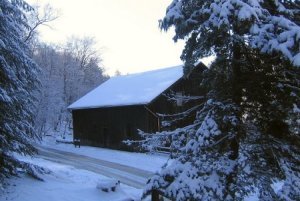 gain weight by eating every day. They stayed thin, thin enough that a
new system of feeding was tried to get these people to gain weight.
They were fed every other day. We can learn from this.
gain weight by eating every day. They stayed thin, thin enough that a
new system of feeding was tried to get these people to gain weight.
They were fed every other day. We can learn from this.In the winter I have hay available at all times. I do not however give good hay, or grain every day. I allow times of a form of rest. Rest for me and the farm animals actually make us both healthier.
Every other day I give feed plentifully; I give extra hay and better hay. If I'm to grain I do it every other day. This means I'm doing fewer chores, getting more relief from the cold. I and my animals are actually holding or gaining weight during the worst time of the year.
HOMESTEAD LIVING - POULTRY WINTER TIPS:
While my birds are on full feed every day, they get added greens, fruits and vegetables every other day. This seems to add to their over all health, while lessening my chores every other day, thus, lessoning my stress.
HOMESTEAD LIVING - ANIMAL SHELTER TIPS:
A simple and healthy way to make sure that livestock shelter is only used when needed for shelter purposes and not a place to hang out, is to feed your farm animals in the wide open. This allows the spring rains to wash away most of the built up manure, and for the animals who have their noses lowered to eat, not to inhale the ammonia fumes that add to lung diseases in the winter.
HOMESTEAD LIVING - LIVESTOCK HEALTH TIPS:
Hand casting on large areas will be extremely productive this way. Plants are allowed to get very established before free range animals will attempt to graze these areas. This will also lesson hoof rot, as the animals will not hang out in the winter feeding spots. They are mushy and wet and they are looking forward to new grass, thus taking them to dryer pasture. Something that barn feeding disallows.
HOMESTEAD LIVING - LIVESTOCK FEEDING TIPS:
Digesting that fiber and hard food stuffs takes energy, energy creates heat. Yes, internal heat via digestion. Just like a warm cup of tea does the trick for you, some crappy old wheat or oat straw with just enough grains in there to make it fun, or some corn stalks is just what they need to keep comfy on those below freezing nights. Goats and sheep will love you for a hand full of sunflower seeds or some saved up pumpkins.
If you haven’t done so, winter is also the time to think about your spring garden. Housing sheep and goats in your garden area over the winter will prove to be better then Miracle Grow come spring. That leftover hay that gets trampled into the ground can also help with mulch. I know the tiller hates it, so sell that tiller and invest in a plow that your pony or goat can pull, it's great fun, does a better job and will be an awesome excuse to spend more time outside when the weather is good. Caprine Supply is a good source for small farming equipment that your sheep, goats, dwarf cattle or pony can pull. I hope this has given you some things to think about and make you and your animals winter a bit easier.
HOMESTEAD LIVING - MORE WINTER TIPS:
- A
good winter time tea for you: Crush some rose hips (great
source of vitamin C) and add
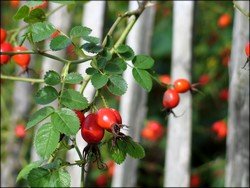 them to a mix of some saved up orange or lemon rind. If you didn’t save
back some raspberry leaves last summer, shame on you! I’m sure you will
this coming year. You can substitute Alfalfa, yup.. that stuff the
sheep are eating.. the leafy part, and add some sorghum molasses - not
honey. This warm drink has just given you more vitamin C then orange
juice, is awesome for your lungs, and adds some much needed vitamin B
in there for some energy to un-sludge you and help with winter
depression.
them to a mix of some saved up orange or lemon rind. If you didn’t save
back some raspberry leaves last summer, shame on you! I’m sure you will
this coming year. You can substitute Alfalfa, yup.. that stuff the
sheep are eating.. the leafy part, and add some sorghum molasses - not
honey. This warm drink has just given you more vitamin C then orange
juice, is awesome for your lungs, and adds some much needed vitamin B
in there for some energy to un-sludge you and help with winter
depression. -
An added pick-me-up for your chickens and poultry: Don't toss those deer hides out. You can either cut the fat off of them for your geese, or just lay them out hide side up for poultry that can peck. Even after they freeze, that fat and meat will be a great boost and add to winter egg production for your chickens, turkeys and other fowl. If you fish, your ducks will go crazy for that protein you are tossing out. Toss it out into your garden like I know you are already doing, but make sure your ducks have access to it. They need some added winter treats too. They poop where they eat, so your garden won't suffer.
-
Those Red Tails and foxes are hungry to this time of year, keep them away from your chicken pens along with the coon and other varmints by tossing deer heads and other things you don't want in your chicken pens close enough to the farm that critters coming for a free meal will find them, yet far enough away that you don't have to worry about them when the weather warms up again.
-
A good treat for your dogs this time of year is not to allow them to feed up on your hunting scraps, this causes gas and if your dog is laying at your feet, like mine is, raw deer is not your friend! Instead dehydrate the lungs, kidney, and other organs as treats, they will still benefit while you control amounts and lesson the after effects of such a rich diet. If your dog lives on meat year round as I know many do, add some warm oatmeal or corn meal to the mix so they can get some added energy to fight off the cold. Now there's a good homestead living piece of advice!
Gypsy's Wanderings Homestead Blog
You can Add your Own Comments about Winter on the Homestead!
We have lots of pages where you can contribute to throughout this homesteading website. We love hearing from our readers, and hope you will be one of those we hear from too. Look around our homesteading website. Please feel free to add your own experiences about homestead living and homesteading today here.
Leave a Comment
Do you have anything that you would like to add after reading this page? We would love to hear your thoughts. If you can add additional information to what has been written here you will be adding value to the website! No need to have any special skills - just type and submit. We will do the rest!



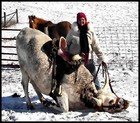
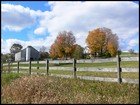
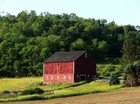

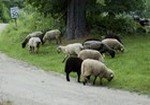
New! Comments
Do you have something of value to add? Leave me a comment in the box below.